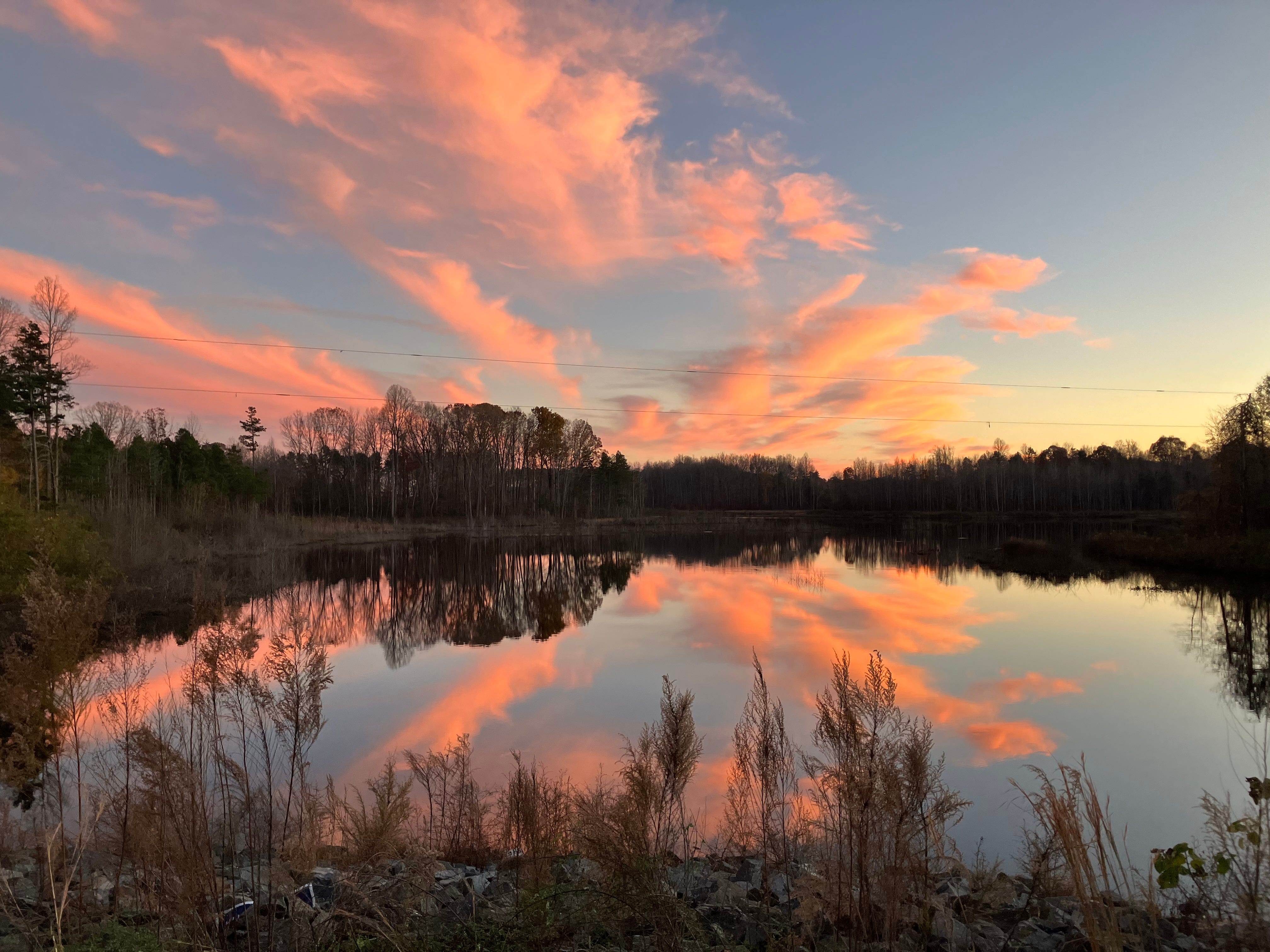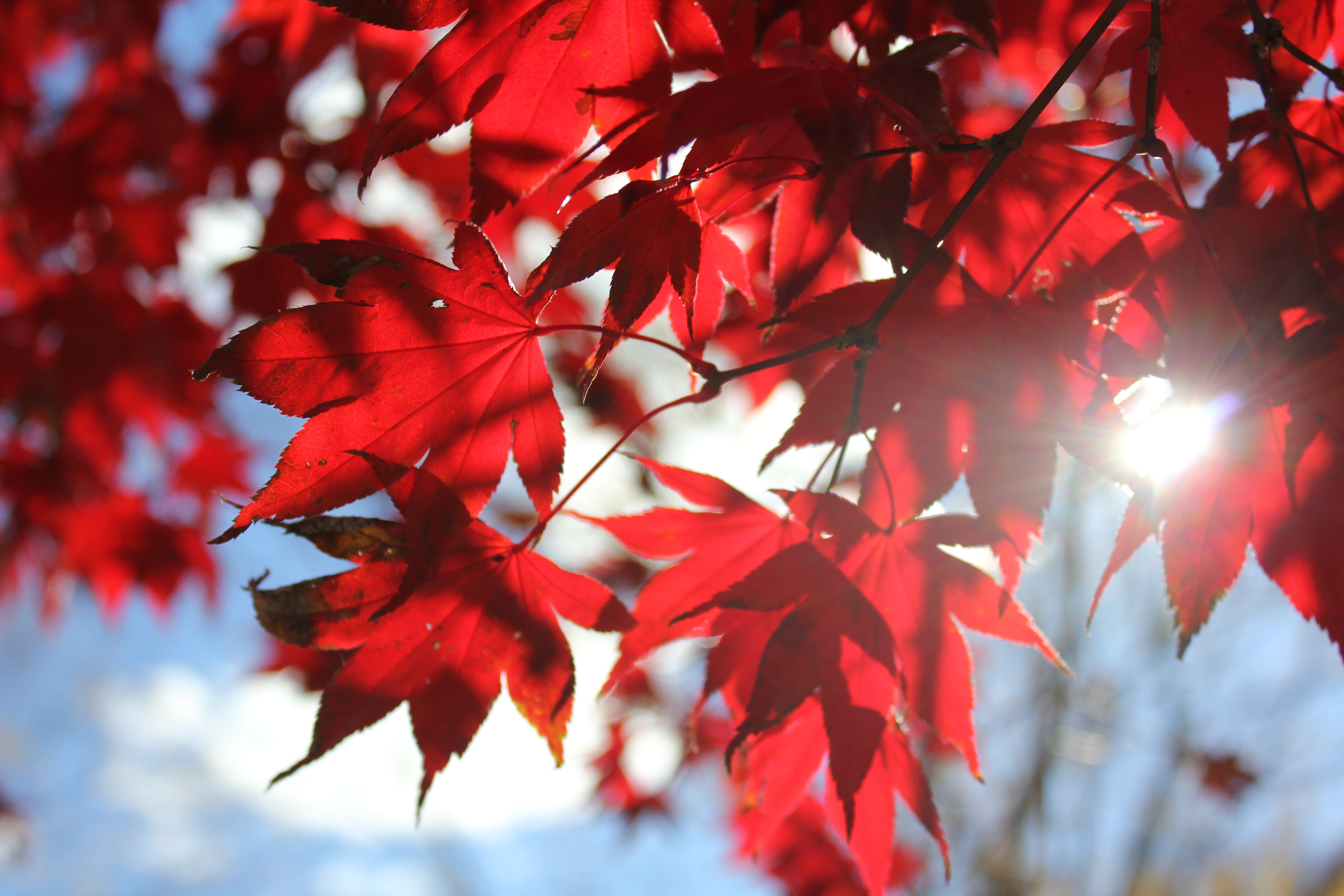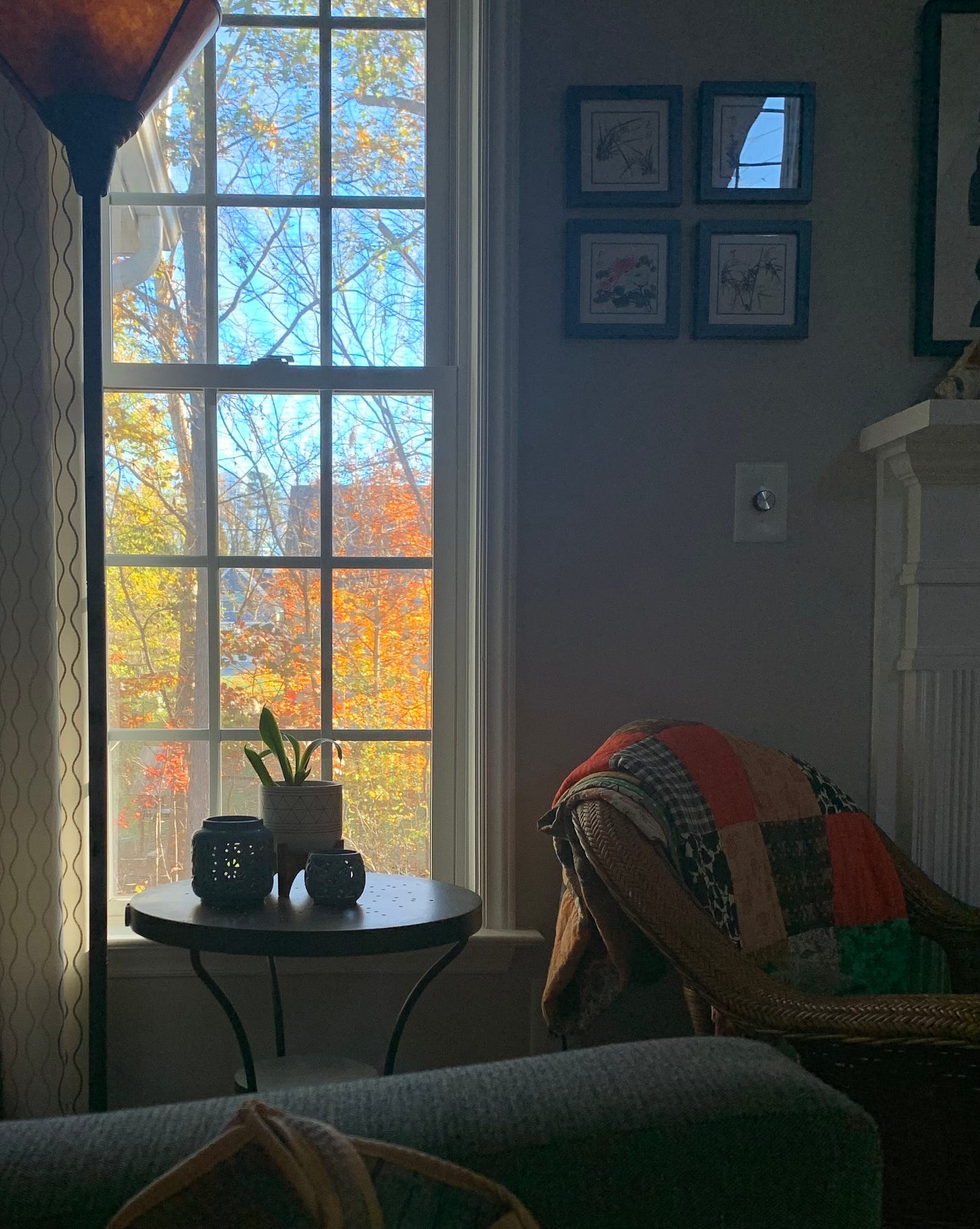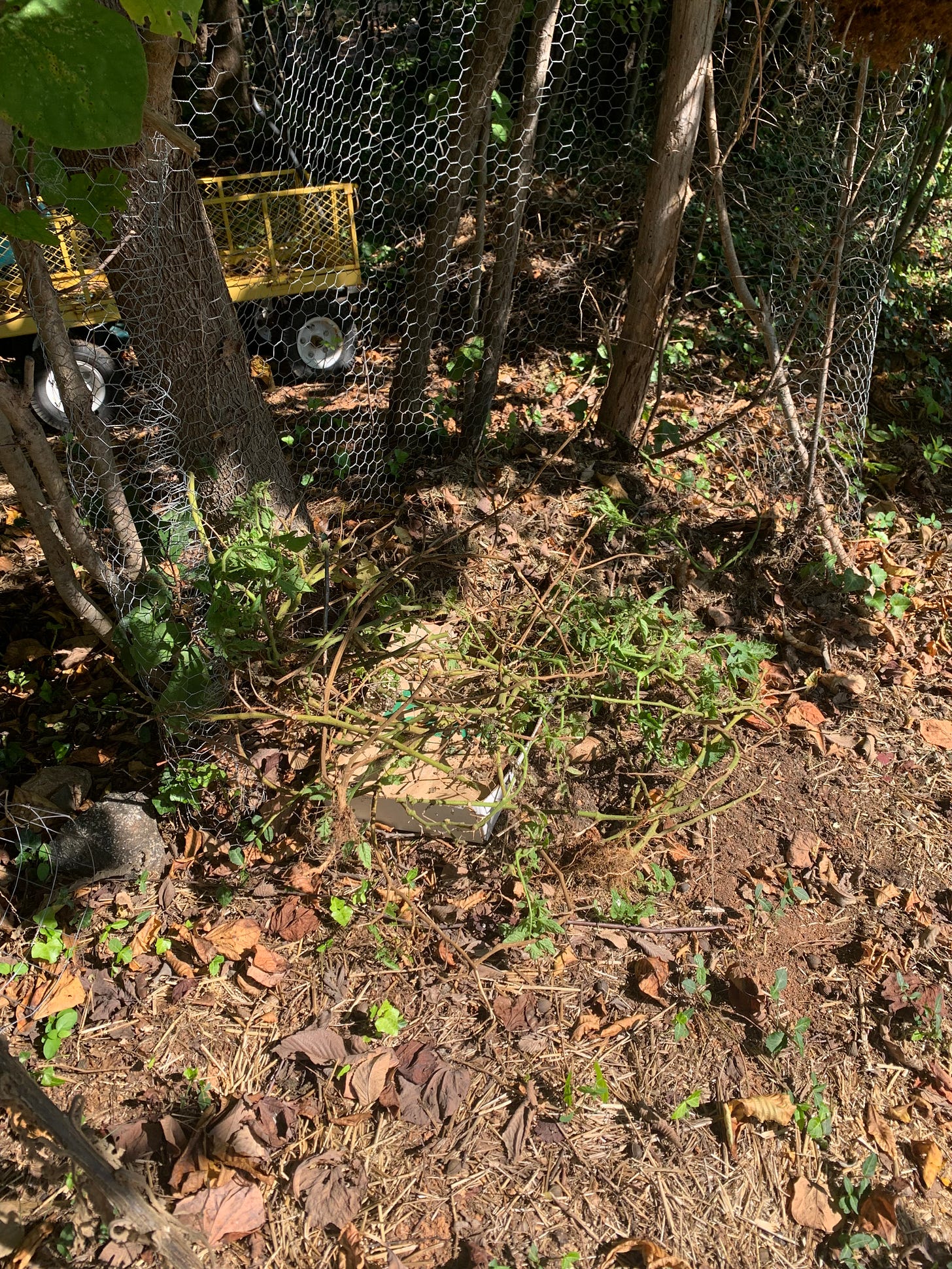I, for one, most heartily welcome some precedented, un-notable, and unhistoric times. November roared in with fury and panic of the 2024 elections, exhaustion from joy or disillusionment, and a dizzying news cycle of a truly extraordinary display of dedication to upend the American experience by the executive branch’s reach and power.
Thankfully, there was also the predictable turning and changing seasons with its own extraordinary display of beauty and richness for all to enjoy. Us neighbors on my street got together for our annual Hill Lane Chili Cookoff. This time we had a lot of newcomers. It was really sweet to gather together around something all could agree on: food, sunshine, and friends. Earlier that day I participated in a community bike ride that was part of the Safe Street Week, and to remember those who had lost their lives in bicycle accidents. It was a great multi-generational turnout, and so wholesome and pleasant, it was almost jarring given the week that it was.
But nothing topped welcoming a second grandchild into our family. He brought joy and peace to us, this long awaited one. We celebrated on Thanksgiving day with a full house, full plates, and full hearts.
The contrast struck me rather deeply. Life is complex. It is never all one thing or all another, but a river of intertwined joys and sorrows. My mind keep “turning” to the ancient wisdom of Ecclesiastes 3:1-8 that speak of giving ourselves to whatever is given us in the days we have.
“For everything there is a season, and a time for every matter under heaven: a time to be born, and a time to die; a time to plant, and a time to pluck up what is planted; a time to kill, and a time to heal; a time to break down, and a time to build up; a time to weep, and a time to laugh; a time to mourn, and a time to dance; a time to cast away stones, and a time to gather stones together; a time to embrace, and a time to refrain from embracing; a time to seek, and a time to lose; a time to keep, and a time to cast away; a time to tear, and a time to sew; a time to keep silence, and a time to speak; a time to love, and a time to hate; a time for war, and a time for peace.”
Literary Wanderings
In between food and more food, my brother in law and I had a fun conversation that started with The Dark Tower movie series based on the Stephen King book series. Recalling the eerie phrase “Childe Roland to the Dark Tower came” and something about running around an English church “widershins,” I pulled my dad’s old college text of Browning, found the poem, and read it aloud, as poems are meant to be. I became deliciously reacquainted with that inviting first stanza that began in the middle, dripping with psychological drama, typical of Browning’s style:
I. My first thought was, he lied in every word, That hoary cripple, with malicious eye Askance to watch the working of his lie On mine, and mouth scarce able to afford Suppression of the glee, that pursed and scored Its edge, at one more victim gained thereby.
Are you intrigued? Read the rest here. That poem was based on the dark and creepy English fairy tale (aren’t they all?) “Child Rowland” written by Joseph Jacobs in 1890. It was clear that the story’s source, like the poem Beowulf inscribed in Anglo-Saxon, was far older. According to the totally fun and lit geeky Writing in Margins, there was a Scottish tale written in 1814 by someone who heard the story from a tailor when he was a child. Elements of the Childe Rowland fairy tale also showed up in Shakespeare’s King Lear, and even earlier in an 1595 play and so on, each rendering older, different and same.
I say ALL THAT to say this—source material is necessary to the art of anything, whether or not you love old poems. We may assume a story is completely original, unshared and unthought across time and place. Wisdom, however, tells us that we recycle materials to recreate what others before us have used and reassembled in brilliant and astonishing ways. And isn’t that a lovely way to honor our shared humanity? We are all sub-creators of the Uncreated Creator’s bright materials.
Now begin your own wanderings.
At the end of the day, Worship
The November sunsets, from our view, have been spectacular. I’ve been craving a more present, slowing down, and savoring the beauty of what we do not work for, create, or impede. It is just there for us to behold. So, on the drive home, turn off the podcast and drive into the sunset (with eyes on the road of course), in the minutes cooking dinner when a glimpse outside shows the sky on fire—pause and step outside. The salad can wait. No group texts or post to tell, explain and respond. Forget the phone. It’s time to pause and drink in the pinks, reds and greens. When the neighborhood text DOES come, drop everything, link arms with the moody pre-teen, scoop up the toddler, and walk outside. Don’t tell them what they must think about or “see,” but just wonder with them. Answer all the littles’ questions about God painting the sky, gazing together.
I need this. We need this. We need to look up and gaze and wonder. We need to see ourselves as part of something larger, brighter, and infinite. We must to lose ourselves in light from time to time. These times demand it. Let’s practice the small things that can calm an anxious mind.

It’s always tomato season.
Warmer temps had my Romas and Cherokee Purples producing well into the end of October. When they ran their course, I pulled them up and transferred them to the compost pile where they will decay, become worm food and reassemble as soil to serve the next tomato plants. The rhythm of life, death, decay and rebirth continues in faithful succession.
Who is welcome at your table?
Humans have amazing abilities to squirm and slip out from under of the bright light of truth. We can be quick to list the reasons that “it” doesn’t apply to us because the ACTUAL meaning of the truth, which, if reeeeaaaalllllyyyy studied out, means something else. Or the application at hand is the product of reaaaalllllly bad people pushing reeeeaaalllllyy bad pagan marxist non-God stuff. So it’s bad to be good, if being good about something includes a similar idea that a bad pagan marxist thought of once or whatever.
So—totally moving past the above type of thinking, we Christians have this call to show hospitality which, is very important to God because it’s talked about and referred to in the same way throughout the Bible.
The elements of such hospitality is to welcome people in their need. Justice of the Bible involves offering those who are not like us shelter or covering that is safe and appropriate to the situation. It might be a roof and a table, or a space for others with a need to relax and feel safe in a way that may not always be convenient or preferred by us.
There are people who practice hospitality to strangers wherever they are, and communicate in word or body language “you belong and I can sit with you however long you need.” (Several of those people come to mind right now.) It does not always feel natural, nor it is everyone’s strength or gifting, but it is something we should all be ready with if sudden need arises.
Dear reader, there are many “groups” who are currently targeted by bad faith legal action, nazi- wanna be’s, white supremacists, and those who will soon occupy the highest office. Would you offer refuge and open your home or table for those fleeing violence?
We ought not to retreat from what threatens our neighbors who are undocumented, or live with undocumented family members: raids, round ups, and violations of spaces that should be a haven such as schools and places of worship. I plan to write a bit more on this subject, but for now, here are three resources to learn about ways to help.
National Immigrant Justice Center: How to Help
Immigration and Advocates: National Immigration Legal Services Directory
Right now I’m a bit over hiding behind polite cliches that can lull us into thinking we just “did something.”
Untwisted Scripture
Do not forget to show hospitality to strangers, for by so doing some people have shown hospitality to angels without knowing it. Continue to remember those in prison as if you were together with them in prison, and those who are mistreated as if you yourselves were suffering. Hebrews 13:2-3
The foreigner residing among you must be treated as your native-born. Love them as yourself, for you were foreigners in Egypt. I am the Lord your God. Leviticus 19:34
Remember, all of us are longing to be home where the table is open for all. Blessings, my friend.










